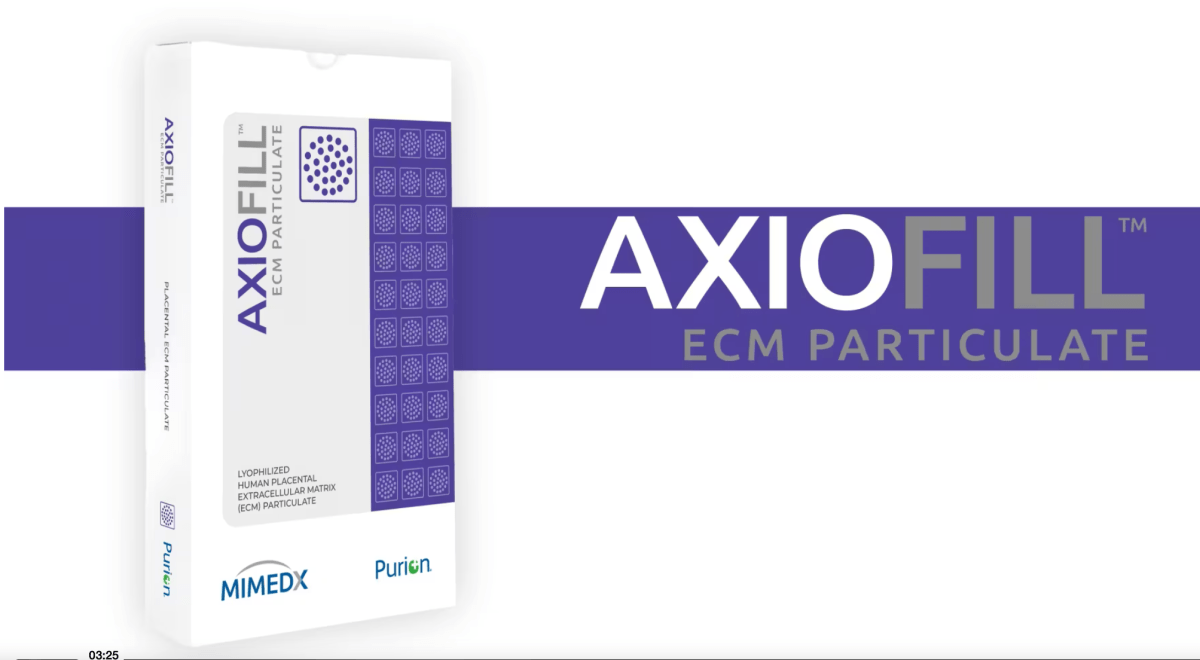Placental biologics firm MiMedx and exosome company Kimera Labs both recently received FDA warning letters.
The letter to MiMedx was related to its placental biologics products and procedures. The new warning to Kimera Labs was about its exosome products and an amniotic product.
Let’s compare these letters starting with the one to MiMedX.

MiMedx warning letter
The FDA says in the letter that MiMedx’s product Axiofill is both a biologic and an unapproved drug. MiMedx disputes that and says the FDA hasn’t been consistent in its oversight of this arena.
Kristina Fiore over at MedPage Today has good coverage of the new MiMedx warning: Company Warned Over Human Placenta Product.
For further background, MiMedx got the new FDA warning about 10 years after receiving an untitled letter from the agency related to a ‘stem cell magnet‘ product. That’s an interesting, old story unto itself.
Fiore also covers some other past issues for this firm:
“The company has faced its share of controversy, including charges involving its marketingopens in a new tab or window and accounting practicesopens in a new tab or window, and allegations that it shipped more product than had been orderedopens in a new tab or window and booked that as sales.
Then, in 2020, MiMedx Group agreed to pay $6.5 millionopens in a new tab or window to resolve allegations that it knowingly submitted false commercial pricing disclosures to the Department of Veterans Affairs, enabling the company to charge inflated prices for its human tissue graft products.”
The letter to MiMedx also noted CGMP deviations.
Kimera Labs warning letter
The warning letter to Kimera Labs is its second in a few years. Yet within the same period the firm got a cleared IND too for studying exosomes for COVID. Feels a bit like a rollercoaster of news to me.
The new letter states:
“The FDA documented that you manufacture exosome products, XoGlo® and XoGlo®Pro, and an amniotic fluid product, Amnio2X®, for allogeneic use (collectively, “your products”)…Therefore, your products are drugs”
The letter goes on:
“Kimera Labs has an IND in effect for XoGlo®Pro (IND 26535) as of May 12, 2023. However, pursuant to 21 CFR 312.7(b), a sponsor or investigator shall not commercially distribute or test market an investigational new drug. Based on this information, your actions have violated the FD&C Act and Section 351(a) of the PHS Act.”
The Kimera warning letter is dated September 1, 2023. Why is it just being released now?
Overall, in the new warning letters to both firms, the FDA notes apparent unapproved biological drug marketing and CGMP deviations.
This fits the pattern of various types of letters from the agency to many firms in the perinatal biologics space in the last three years.
FDA letters in general don’t seem to work
More broadly, I believe the FDA’s main strategy of sending various types of letters to unproven cell therapy clinics and manufacturers isn’t working.
Whether it’s fat cells, birth-related cells, or other materials, the clinics and manufacturers just keep on going whether they get letters or not.
The agency needs a new approach that is broad, nimble, and leads to concrete results.
As I’ve now said many times, fines are perhaps the best option. They potentially could be issued to dozens or even hundreds of firms without prior inspections. Is there some legal or practical obstacle to fines?
The FDA recently said it has issued 28 warning letters, 40 untitled letters, and more than 600 unspecified letters in the unproven, direct to consumer, cell biologics arena in the last 5 or so years.
What percent of these were concretely effective?
NYT deep dive on Bryan Johnson Longevity movement
The Meme King of Longevity Now Wants to Sell You Olive Oil, NYT. This is a refreshingly thorough look at the longevity efforts of Bryan Johnson. It has some interesting background:
In 2007, he founded his own payment processing company, Braintree, which acquired the startup Venmo and, in 2013, was itself acquired by eBay for $800 million.”
His anti-aging efforts are a newer direction.
The NYT piece discusses how he has a massive following who seem to want to be like him.
“In conversations about Blueprint, it’s hard to avoid the word cult. Mr. Johnson himself likes to joke: “Is this some sick and twisted cult trying to get me to go to bed on time?”
Jeff Tang, who recently started a Blueprint-based meal prep company in the San Francisco area, said a lot of businesses “feel like cults at the beginning,” citing WeWork as an example.”
They follow his lead on some longevity efforts. Some of these folks even wear “don’t die” t-shirts too.
Other recommended reads
Related Posts
- SEO Powered Content & PR Distribution. Get Amplified Today.
- PlatoData.Network Vertical Generative Ai. Empower Yourself. Access Here.
- PlatoAiStream. Web3 Intelligence. Knowledge Amplified. Access Here.
- PlatoESG. Carbon, CleanTech, Energy, Environment, Solar, Waste Management. Access Here.
- PlatoHealth. Biotech and Clinical Trials Intelligence. Access Here.
- Source: https://ipscell.com/2024/01/weekly-reads-mimedx-kimera-labs-fda-warnings-nyt-on-bryan-johnson-muse-cell-trial/
